


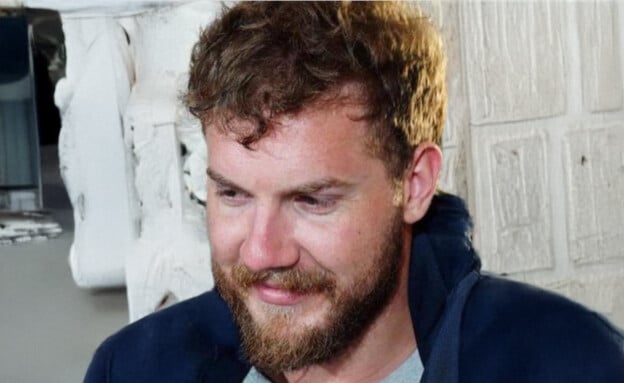
Roi Wasserstein, a 24-year-old Israel Defense Forces reservist who served as a combat medic in Gaza, died by suicide on Wednesday, sparking renewed public scrutiny over the treatment of traumatized soldiers and prompting Chief of Staff Lt. Gen. Eyal Zamir to consider a change in how the military classifies such deaths.
Wasserstein’s mother, Dina, a well-known community figure in the central city of Netanya, announced her son’s death in a Facebook post.
“With deep sorrow and a broken heart, I share the terrible tragedy that has struck our family,” she wrote. “My beloved son, Roi Wasserstein, ended his life just before his 25th birthday.”
Dina described Roi as “a child full of light, humble, kind-hearted, a quiet hero who served as a combat medic in an armored unit on October 7 with immeasurable bravery. He came home with a silence none of us could break.”
“We’re still trying to grasp the unfathomable loss. Funeral details will be shared soon. Thank you to everyone embracing us from near and far. Roi will always be in our hearts,” she added.
Wasserstein, from Netanya, had completed more than 300 days of reserve duty since the beginning of the war, serving in the medical evacuation unit of the IDF’s 401st Armored Brigade. He was regularly tasked with evacuating wounded and fallen soldiers under fire. According to his mother, Wasserstein was deeply affected by the horrors he witnessed on the battlefield.
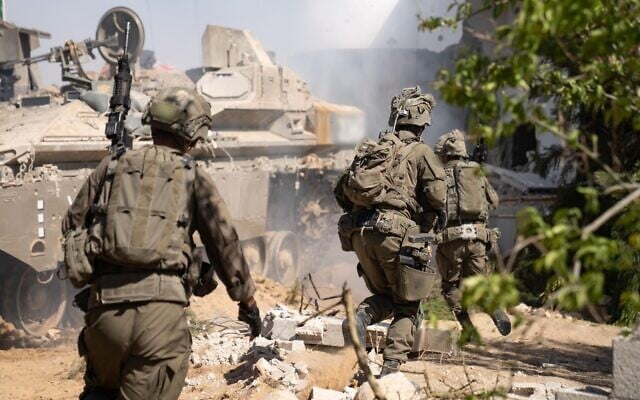
“After October 7, he took part in retrieving bodies under fire. He saw horrific sights,” she told Ynet. “He got out of a tank in the middle of an inferno to prevent soldiers from being abducted and evacuated soldiers with amputated limbs. It affected him deeply. Ever since he came home, it never left him.”
Wasserstein reportedly completed his last round of reserve duty in late May and was not on active service at the time of his death. As a result, the IDF initially informed the family — through unofficial channels — that he would not be recognized as a fallen soldier, and would therefore be buried in a civilian ceremony.
According to Israeli law, only those who die during regular or active reserve service are formally recognized as military casualties.
The decision drew outrage from the family, with Ynet quoting relatives who accused the army and Defense Ministry of “disowning” Wasserstein in death, and asking, “Where is the shame?”
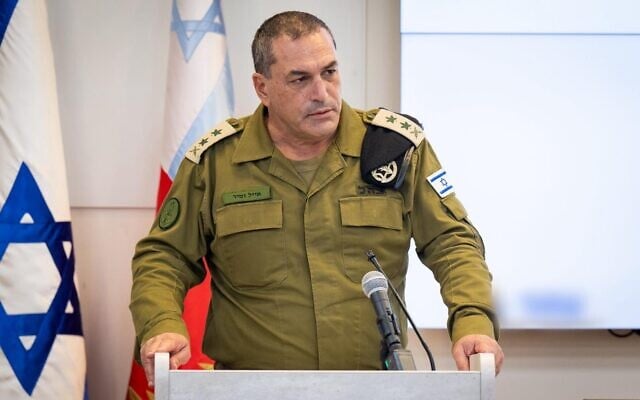
In response, the IDF said Zamir had instructed the military to explore advancing legislation that would allow reservists who die outside of active duty to be recognized as fallen soldiers, provided a direct connection is established between their service and their death.
“According to the law, an IDF fallen soldier is defined as one who died during regular or active reserve service, and therefore, he is not officially recognized as an IDF fallen soldier,” the military said in a statement.
“However, due to the circumstances of the case, the chief of staff has instructed an examination of the possibility of advancing legislation that would grant the IDF the authority to recognize, in exceptional cases, a reserve soldier who passed away outside of military service as an IDF fallen soldier, if a direct link is found between the death and military service,” it said.
While the military is not able to directly advance laws, it can send representatives to relevant Knesset committees to present its agenda.
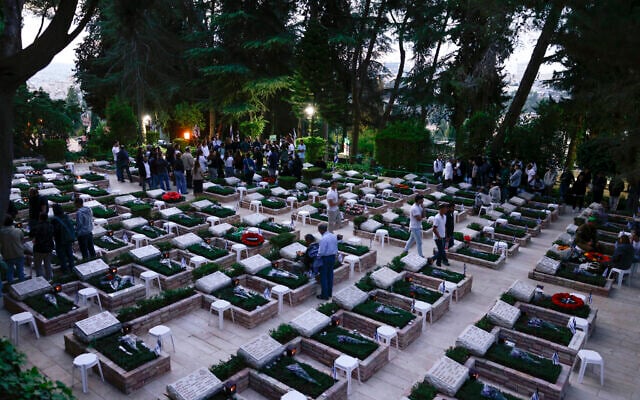
The IDF also said that it “shares in the deep sorrow of the Wasserstein family” and praised his contribution and sacrifice, saying that it offered to hold his funeral in the presence of fellow soldiers from his brigade, with a commander attending and laying a wreath in his honor.
In response to the IDF’s statement, Dina told Ynet, “Unfortunately, he suffered the trauma while on active duty, and post-trauma comes afterward. This is not a physical injury; it is a wound of the soul. Roi died because of the consequences of the battlefield. I hope that the cry of Roi’s death will bring change and proper treatment for all the fighters who gave their lives.”
Defense Minister Israel Katz also responded to the incident, instructing his office and the IDF to provide the family with full support in planning the funeral and giving military honors, despite Wasserstein’s current classification.
In a further step, the IDF announced that the head of the Personnel Directorate, Maj. Gen. Dado Bar Kalifa, in coordination with Katz and Zamir, has ordered the establishment of a panel of experts to “examine the response provided to discharged soldiers and reservists who are not on active duty and who ended their lives following their military service.”
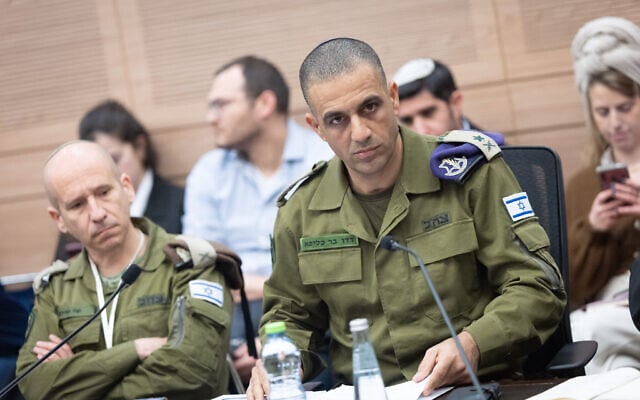
The committee, to be headed by former Personnel Directorate chief Maj. Gen. (res.) Moti Almoz, will include IDF medical and mental health professionals, legal advisers, casualty officers, and Defense Ministry representatives.
“The committee will examine systemic, moral, and socio-national aspects related to the challenges faced by IDF veterans after their discharge, including issues of recognition and support for servicemembers, as well as the legal implications of recognizing their cases,” the IDF said.
The military added that the committee is intended to “ensure a thorough, responsible, sensitive, and equitable examination of the support given to servicemembers throughout and after their military service.” Its findings will be presented by Bar Kalifa to Katz and Zamir for approval.
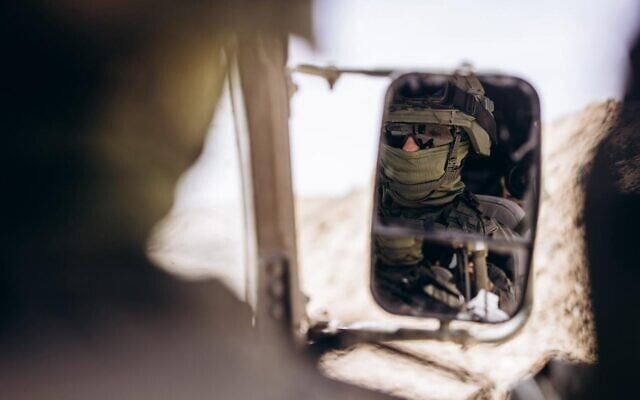
Wasserstein’s death comes amid rising concern over the long-term psychological toll of the war on both reservists and active-duty troops. While the IDF maintains that recent mental health reforms were in development long before the latest incidents, the timing has sparked public scrutiny.
These reforms include a new policy requiring reservists diagnosed with significant psychological injuries — such as post-traumatic stress disorder — to undergo formal mental health evaluations before being cleared for reserve duty. Soldiers found unfit may be discharged from service to prevent further harm.
The policy aims to close previous gaps in data-sharing between the Defense Ministry’s Rehabilitation Department, which assesses veterans’ mental health disabilities, and the military, ensuring that commanders have up-to-date information on their troops’ psychological fitness.
Wasserstein is one of several soldiers to die by suspected suicide in recent weeks — including Daniel Edri, who, like him, was a veteran of intense military service but not in active duty when he took his own life.
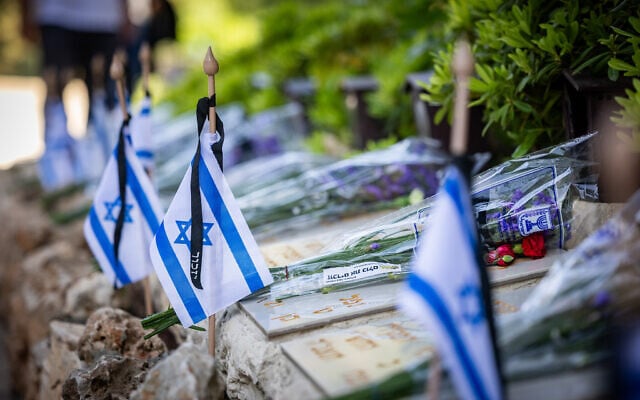
The number of suspected suicides among Israeli soldiers had risen sharply since the Hamas-led assault on October 7, 2023, according to data published by the IDF.
The IDF does not publish suicide statistics more than once a year, so it is hard to know with certainty how many soldiers have died by suicide this year, but Channel 12 reported the number as 17 as of Monday.
In 2024, 21 soldiers died by suicide, and in 2023, 17 did, including seven after the October 7 attack. These marked the highest numbers since 2011. The majority were reservists.
